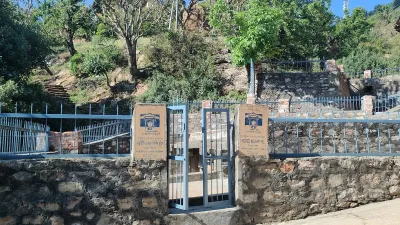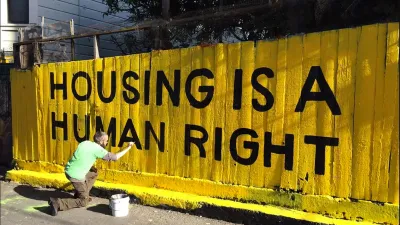Eric Weiner's "The Geography of Genius" offers a delightful, if limited, analysis of cities throughout history where "genius" has arisen and offers inspiration for planners who want to make cities more than just places to live and do business.
"Taken seriously, 'Geography of Genius' is a troubling book, lauding a scant few individuals throughout history who, by a combination of talent, relative privilege, and good fortune qualify as 'geniuses.' Fortunately, we don’t have to take it that seriously. Its strength and weakness that it is not a rigorous scholarly review but rather a romp through human achievement – and the cities where it has taken place."
"Weiner explains the intuitive notion that most forms of genius require collaboration and, by extension, urban agglomeration. Tech entrepreneurs require programmers and funders. Philosophers require other philosophers. One of Weiner’s refrains is that genius emerges according to what a populace values. Weiner writes, “What is honored in a [place] will be cultivated there.” Viennese love their classical music the way San Franciscans love their convenience."
"The cluster of cities between San Jose and San Francisco 'is not a city,' Weiner writes; 'it is suburban sprawl, which all the California sunshine and digital pixie dust can't hide.' Its success seems to undermine all those nice notions of strolling and quaffing. Indeed, if drinking and walking are key to genius, most modern American cities are doomed."
FULL STORY: Intellectual Tourism, Near and Far: Review of 'The Geography of Genius'

Planetizen Federal Action Tracker
A weekly monitor of how Trump’s orders and actions are impacting planners and planning in America.

Map: Where Senate Republicans Want to Sell Your Public Lands
For public land advocates, the Senate Republicans’ proposal to sell millions of acres of public land in the West is “the biggest fight of their careers.”

Restaurant Patios Were a Pandemic Win — Why Were They so Hard to Keep?
Social distancing requirements and changes in travel patterns prompted cities to pilot new uses for street and sidewalk space. Then it got complicated.

Platform Pilsner: Vancouver Transit Agency Releases... a Beer?
TransLink will receive a portion of every sale of the four-pack.

Toronto Weighs Cheaper Transit, Parking Hikes for Major Events
Special event rates would take effect during large festivals, sports games and concerts to ‘discourage driving, manage congestion and free up space for transit.”

Berlin to Consider Car-Free Zone Larger Than Manhattan
The area bound by the 22-mile Ringbahn would still allow 12 uses of a private automobile per year per person, and several other exemptions.
Urban Design for Planners 1: Software Tools
This six-course series explores essential urban design concepts using open source software and equips planners with the tools they need to participate fully in the urban design process.
Planning for Universal Design
Learn the tools for implementing Universal Design in planning regulations.
Heyer Gruel & Associates PA
JM Goldson LLC
Custer County Colorado
City of Camden Redevelopment Agency
City of Astoria
Transportation Research & Education Center (TREC) at Portland State University
Camden Redevelopment Agency
City of Claremont
Municipality of Princeton (NJ)





























